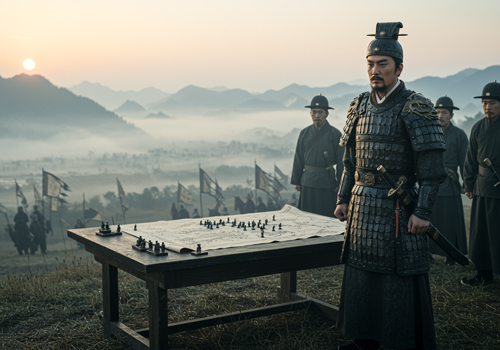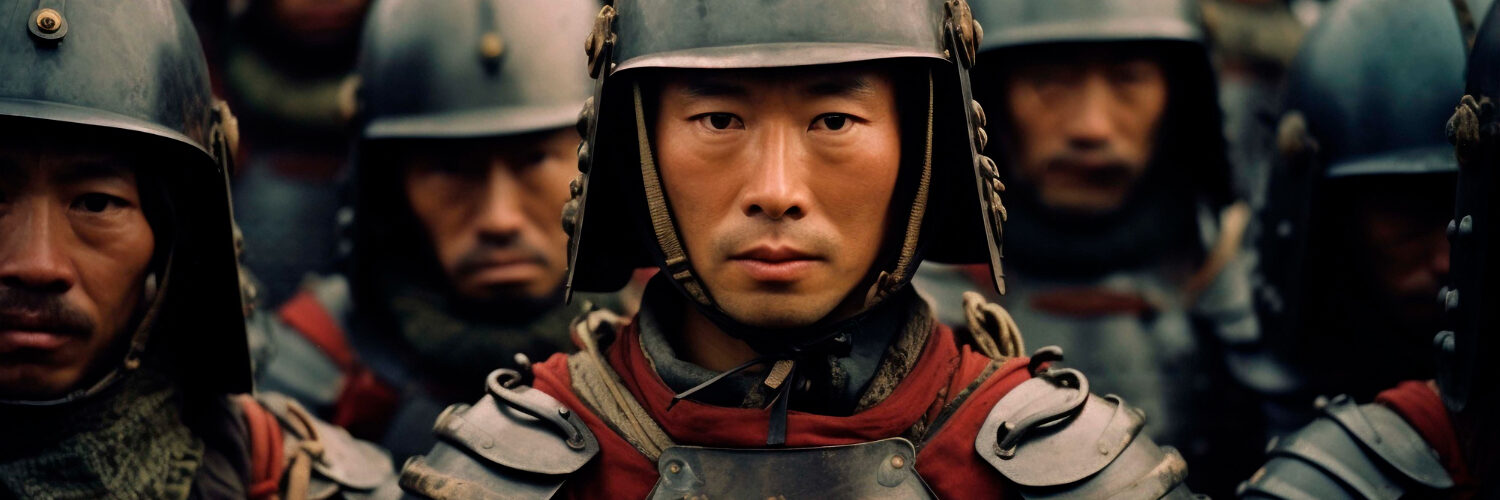Sun Tzu’s The Art of War is an ancient Chinese military treatise composed of thirteen chapters, each focusing on a specific aspect of warfare and strategy. While rooted in military practice, the text extends far beyond the battlefield, influencing political, business, and personal strategies across cultures and centuries. The essence of Sun Tzu’s teachings lies in understanding the nature of conflict and achieving victory through wisdom, planning, and minimal confrontation. The foundational principle of the book is that the supreme art of war is to subdue the enemy without fighting. This reflects a preference for psychological and strategic mastery over brute force. Conflict, Sun Tzu implies, is inevitable, but how one approaches it determines the outcome and cost. War is not merely a matter of strength but one of deception, flexibility, awareness, and timing. Therefore, the most effective leader is one who can manipulate conditions, control perceptions, and manage both tangible and intangible aspects of warfare.
From the outset, Sun Tzu emphasizes the importance of planning and evaluation. Before any battle is fought, a commander must consider five fundamental factors: moral influence, weather, terrain, command, and doctrine. These factors shape both one’s ability to lead and to assess the enemy accurately. Moral influence pertains to the unity between ruler and people; when the populace aligns with leadership, they are more willing to follow and endure hardships. Weather and terrain affect how and when to move troops, and successful generals use the environment to their advantage. Command refers to the character of the leader—his intelligence, credibility, benevolence, courage, and discipline. Doctrine relates to the organizational structure, logistics, and systems of reward and punishment that keep an army functional. Through comparative analysis of these elements, a leader can predict the outcome of conflict even before it begins, choosing to engage only when the odds are decisively favorable.

One of Sun Tzu’s most profound insights is the idea that all warfare is based on deception. To win, one must appear weak when strong and strong when weak, lure opponents with false advantages, and misdirect their actions. Surprise is a critical weapon. If a commander can cause confusion, provoke misjudgment, or unsettle the enemy’s confidence, victory becomes much easier to obtain. Moreover, by controlling information and keeping one’s true intentions hidden, a leader prevents the enemy from gaining useful intelligence. Sun Tzu teaches that appearing predictable leads to defeat, while being unreadable forces the enemy into cautious, reactive behavior. These psychological tactics not only conserve resources but also make battle unnecessary in many cases, as the enemy may retreat or surrender without fighting. Therefore, success often belongs not to the most aggressive commander, but to the one who manipulates perception and maintains adaptability.
Flexibility is another cornerstone of Sun Tzu’s thought. He warns that rigid plans or static strategies are vulnerable because war is fluid, constantly shaped by new variables and shifting circumstances. A wise general does not rely on fixed procedures but adjusts tactics according to the moment. Just as water flows to the lowest point, adapting to the shape of the terrain, a skilled commander adjusts his approach to fit the battlefield. To this end, knowing oneself and knowing the enemy is paramount. If one understands both thoroughly, then victory is assured even in a hundred battles. Ignorance of either, however, leads to risk and probable defeat. This dual knowledge allows for precise decision-making, where each move is based on a dynamic assessment rather than blind impulse or emotional reaction. To win, one must learn to read the conditions of war with the same sensitivity and responsiveness that a sailor uses to read the wind.
Another vital principle in the book is the economy of force. Sun Tzu views war as a costly enterprise, both in terms of lives and resources. Therefore, the greatest victories are those achieved with the least expenditure. Fighting is only a last resort when diplomacy, alliances, espionage, or strategic positioning cannot resolve the conflict. When war is unavoidable, swift and decisive action is essential. Long campaigns drain morale, sap resources, and diminish public support. Thus, successful leaders avoid prolonged warfare and aim to strike quickly, exploiting weaknesses and ending conflict before it escalates. The goal is not total destruction of the enemy, but neutralization of their ability to resist. Capturing enemy forces intact, preserving cities, and avoiding needless devastation are signs of true strategic mastery. Victory without violence is the highest form of achievement in Sun Tzu’s framework, because it preserves life, minimizes cost, and demonstrates intellectual and moral superiority.
The use of spies and intelligence is another recurring theme. Information is the lifeblood of strategy, and those who possess superior knowledge hold the keys to control. Sun Tzu identifies five kinds of spies—local, inside, double, doomed, and surviving—and advocates using them in concert to create a comprehensive picture of enemy intentions and capabilities. Spies are not just tools for acquiring information but also for feeding false intelligence to the enemy. Through espionage, a general can disrupt enemy plans, foster discord among their leaders, and provoke mistakes that lead to their downfall. By influencing enemy perceptions, a commander manipulates them into actions favorable to one’s own side. Therefore, investing in intelligence is not a luxury but a necessity. It allows a general to win before the battle begins, to act decisively with minimal risk, and to position forces in ways that create inevitable outcomes. Knowledge, properly gathered and applied, becomes more powerful than weapons.
The structure and discipline of an army are equally critical. Sun Tzu asserts that a disorganized army is doomed, regardless of its numbers. Leadership must be firm yet just, able to enforce order without cruelty. Clear communication, consistent rewards and punishments, and mutual trust between commander and troops foster cohesion. Soldiers must respect and follow their leader, not out of fear, but from confidence in his vision and care. At the same time, a commander must be willing to act decisively, even if it involves painful choices. Indecisiveness, favoritism, or lack of discipline sows confusion and weakens morale. A disciplined army acts as a single organism, able to carry out complex maneuvers and respond to sudden changes. Without order, even the most skilled warriors become liabilities. Thus, Sun Tzu sees leadership as both a moral and tactical function—one that requires clarity, strength, and emotional intelligence.
Terrain also plays a vital role in Sun Tzu’s military philosophy. Different types of ground—accessible, entangling, temporizing, narrow, precipitous, distant—require different strategies. A wise general evaluates the battlefield before committing to action, using the features of the landscape to shield his forces, restrict enemy movement, or launch surprise attacks. Mastery of terrain enables a smaller force to defeat a larger one by exploiting positional advantages. Movement must be efficient and hidden when possible; exposing one’s intentions or exhausting one’s troops through poor planning leads to failure. Therefore, logistics and timing become essential complements to bravery and skill. Marching at the right time, choosing the right path, and encamping in the right place can mean the difference between victory and ruin. The land is not merely a backdrop but an active component of the strategy. Sun Tzu’s appreciation for geography underscores his holistic approach to warfare, where success arises from harmony with both human and environmental elements.
Momentum and timing are also critical components. Just as natural forces—like wind, waves, or lightning—are most powerful when concentrated and properly timed, military actions must be launched at moments of maximum impact. A good general waits patiently for the opportune moment and then strikes with overwhelming force. Premature action or hesitation dilutes effectiveness and gives the enemy time to respond. When the enemy is overextended, distracted, or weakened, then is the time to move decisively. This principle applies not only to battle but also to negotiation, retreat, and regrouping. By waiting for the right moment, a leader conserves energy, avoids risk, and capitalizes on enemy mistakes. When momentum is in one’s favor, even a small force can achieve great results. When it is not, even superior numbers may falter. Therefore, understanding the rhythm of conflict—when to act and when to wait—is a mark of strategic genius.
Sun Tzu also addresses the psychology of warfare. Morale, perception, fear, and confidence are as important as physical strength. A general must inspire his troops, maintain their hope, and prevent despair. Creating a sense of purpose and shared fate strengthens their resolve. At the same time, sowing fear, confusion, or division in the enemy weakens their effectiveness. Psychological tactics—such as feigned retreats, surprise attacks, or misleading displays—can disorient the opponent and provoke errors. Warfare, in this sense, becomes a contest of minds as much as of arms. A battle may be won or lost before it begins, depending on how each side perceives its situation. Thus, Sun Tzu views warfare not only as a physical conflict but as a battle of perception and belief. By mastering human psychology, a commander can control the narrative of war, bending both allies and enemies to his will.
Throughout The Art of War, Sun Tzu insists that every war should have a clearly defined objective and that victory should serve a higher political or strategic goal. War is not an end in itself but a means to secure peace, stability, or national interest. Therefore, entering war without a clear understanding of its purpose or likely outcome is reckless. Leadership involves not just the ability to win battles but the wisdom to avoid unnecessary ones. Diplomacy, alliances, and strategic positioning are preferable tools, and when used wisely, can render warfare obsolete. Even when war is necessary, it must be conducted with restraint, compassion, and foresight. Excessive cruelty or wanton destruction leads to long-term instability, undermining the very gains one seeks to achieve. The ultimate goal of warfare is to restore harmony and order, not to dominate for its own sake. Thus, Sun Tzu places warfare within a broader ethical and political context, elevating it from a mere contest of strength to a disciplined art governed by reason.
In essence, The Art of War offers a sophisticated and nuanced understanding of conflict, applicable far beyond the battlefield. It teaches that success lies not in aggression but in awareness, adaptability, and restraint. Victory is achieved not by crushing the enemy but by creating conditions in which conflict becomes unnecessary. The best leaders are those who understand both the visible and invisible dimensions of power—who can read the terrain, sense the mood, anticipate the enemy, and act with precision. They govern not through fear or force alone but through wisdom, patience, and strategic clarity. Sun Tzu’s timeless text continues to resonate because it speaks to the universal truths of conflict—whether in war, politics, business, or personal life. It reminds us that true strength lies in the mind, that mastery begins with self-knowledge, and that the path to victory is often the one that avoids the battle altogether.

Sample Chapters from the Original Book:
Chapter 1 : Laying Plans
- Sun Tzu said: The art of war is of vital importance to the State.
- It is a matter of life and death, a road either to safety or to ruin. Hence it is a subject of inquiry which can on no account be neglected.
- The art of war, then, is governed by five constant factors, to be taken into account in one’s deliberations, when seeking to determine the conditions obtaining in the field.
- These are: (1) The Moral Law; (2) Heaven; (3) Earth; (4) The Commander; (5) Method and discipline.
- The Moral Law causes the people to be in complete accord with their ruler, so that they will follow him regardless of their lives, undismayed by any danger.
- Heaven signifies night and day, cold and heat, times and seasons.
- Earth comprises distances, great and small; danger and security; open ground and narrow passes; the chances of life and death.
- The Commander stands for the virtues of wisdom, sincerity, benevolence, courage and strictness.
- The five cardinal virtues of the Chinese are (1) humanity or benevolence; (2) uprightness of mind; (3) self-respect, self-control, or ‘proper feeling’; (4) wisdom; (5) sincerity or good faith.
- By Method and discipline are to be understood the marshalling of the army in its proper subdivisions, the gradations of rank among the officers, the maintenance of roads by which supplies may reach the army, and the control of military expenditure.
- These five heads should be familiar to every general: he who knows them will be victorious; he who knows them will not fail.
- Therefore, in your deliberations, when seeking to determine the military conditions, let them be made the basis of a comparison, in this wise.
- (1) Which of the two sovereigns is imbued with the Moral law? (2) Which of the two generals has most ability? (3) With whom lie the advantages derived from Heaven and Earth? (4) On which side is discipline most rigorously enforced? (5) Which army is the stronger? (6) On which side are officers and men more highly trained? (7) In which army is there the greater constancy both in reward and punishment?
- By means of these seven considerations I can forecast victory or defeat.
- The general that hearkens to my counsel and acts upon it, will conquer—let such a one be retained in command! The general that hearkens not to my counsel nor acts upon it, will suffer defeat—let such a one be dismissed!
- While heeding the profit of my counsel, avail yourself also of any helpful circumstances over and beyond the ordinary rules.
- According to circumstances that are favourable, one should modify one’s plans.
Sun Tzu, as a practical soldier, cautions us here not to pin our faith to abstract principles; ‘for,’ as Chang Yü puts it, ‘while the main laws of strategy can be stated clearly enough for the benefit of all and sundry, you must be guided by the actions of the enemy in attempting to secure a favourable position in actual warfare.’ On the eve of the battle of Waterloo, Lord Uxbridge, commanding the cavalry, went to the Duke of Wellington in order to learn what his plans and calculations were for the morrow, because, as he explained, he might suddenly find himself Commander-in-chief and would be unable to frame new plans in a critical moment. The Duke listened quietly and then said: ‘Who will attack the first tomorrow – I or Bonaparte?’ ‘Bonaparte,’ replied Lord Uxbridge. ‘Well,’ continued the Duke, ‘Bonaparte has not given me any idea of his projects; and as my plans will depend upon his, how can you expect me to tell you what mine are?’
- All warfare is based on deception.
The truth of this pithy and profound saying will be admitted by every soldier. Wellington, great in so many military qualities, was especially distinguished by ‘the extraordinary skill with which he concealed his movements and deceived both friend and foe.’
- Hence, when able to attack, we must seem unable; when using our forces, we must seem inactive; when we are near, we must make the enemy believe we are far away; when far away, we must make him believe we are near.
- Hold out baits to entice the enemy. Feign disorder, and crush him.
- If he is secure at all points, be prepared for him. If he is in superior strength, evade him.
- If your opponent is of choleric temper, seek to irritate him. Pretend to be weak, so that he may grow arrogant.
The good tactician plays with his adversary as a cat plays with a mouse, first feigning weakness and immobility, and then suddenly pouncing upon him.
- If he is taking his ease, give him no rest. If his forces are united, separate them.
- Attack him where he is unprepared, appear where you are not expected.
- These military devices, leading to victory, must not be divulged beforehand.
- Now the general who wins a battle makes many calculations in his temple ere the battle is fought. The general who loses a battle makes but few calculations beforehand. Thus do many calculations lead to victory, and few calculations to defeat: how much more no calculation at all! It is by attention to this point that I can foresee who is likely to win or lose.
Chapter 2 : Waging War
‘He who wishes to fight must first count the cost,’ which prepares us for the discovery that the subject of the chapter is not what we might expect from the title, but is primarily a consideration of ways and means.
- Sun Tzu said: In the operations of war, where there are thousand swift chariots in the field, so many heavy chariots, and a hundred thousand mail-clad soldiers, with provisions enough to carry them a thousand li, the expenditure at home and at the front, including entertainment of guests, small items such as glue and paint, and sums spent on chariots and armour, will reach the total of a thousand ounces of silver per day. Such is the cost of raising an army of 100,000 men.
- When you engage in actual fighting, if victory is long in coming, the men’s weapons will grow dull and their ardour will be damped. If you lay siege to a town, you will exhaust your strength.
- Again, if the campaign is protracted, the resources of the State will not be equal to the strain.
- Now, when your weapons are dulled, your ardour damped, your strength exhausted and your treasure spent, other chieftains will spring up to take advantage of your extremity. Then no man, however wise, will be able to avert the consequences that must ensue.
- Thus, though we have heard of stupid haste in war, cleverness has never been seen associated with long delays.
- There is no instance of a country having benefited from prolonged warfare.
- It is only one who is thoroughly acquainted with the evils of war can only thoroughly understand the profitable way of carrying it on.
That is, with rapidity. Only one who knows the disastrous effects of a long war can realise the supreme importance of rapidity in bringing it to a close.
- The skilful soldier does not raise a second levy, neither are his supply-waggons loaded more than twice.
Once war is declared, he will not waste precious time in waiting for reinforcements, nor will he turn his army back for fresh supplies, but crosses the enemy’s frontier without delay. This may seem an audacious policy to recommend, but with all great strategists, from Julius Caesar to Napoleon Bonaparte, the value of time—that is, being a little ahead of your opponent—has counted for more than either numerical superiority or the nicest calculations with regard to commissariat.
- Bring war material with you from home, but forage on the enemy. Thus the army will have food enough for its needs.
- Poverty of the State exchequer causes an army to be maintained by contributions from a distance. Contributing to maintain an army at a distance causes the people to be impoverished.
- On the other hand, the proximity of an army causes prices to go up; and high prices cause the people’s substance to be drained away.
- When their substance is drained away, the peasantry will be afflicted by heavy exactions.
- 14. With this loss of substance and exhaustion of strength, the homes of the people will be stripped bare, and three-tenths of their incomes will be dissipated; while Government expenses for broken chariots, worn-out horses, breast-plates and helmets, bows and arrows, spears and shields, protective mantlets, draught-oxen and heavy waggons, will amount to four-tenths of its total revenue.
‘The people being regarded as the essential part of the State, and food as the people’s heaven, is it not right that those in authority should value and be careful of both?’
- Hence a wise general makes a point of foraging on the enemy. One cartload of the enemy’s provisions is equivalent to twenty of one’s own, and likewise a single picul of his provender is equivalent to twenty from one’s own store.
Because twenty cartloads will be consumed in the process of transporting one cartload to the front.
- Now in order to kill the enemy, our men must be roused to anger; that there may be advantage from defeating the enemy, they must have their rewards.
‘Rewards are necessary in order to make the soldiers see the advantage of beating the enemy; thus, when you capture spoils from the enemy, they must be used as rewards, so that all your men may have a keen desire to fight, each on his own account.’
- Therefore in chariot fighting, when ten or more chariots have been taken, those should be rewarded who took the first. Our own flags should be substituted for those of the enemy, and the chariots mingled and used in conjunction with ours. The captured soldiers should be kindly treated and kept.
- This is called, using the conquered foe to augment one’s own strength.
- In war, then, let your great object be victory, not lengthy campaigns.
- Thus it may be known that the leader of an army is the arbiter of the people’s fate, the man on whom it depends whether the nation shall be in peace or in peril.







